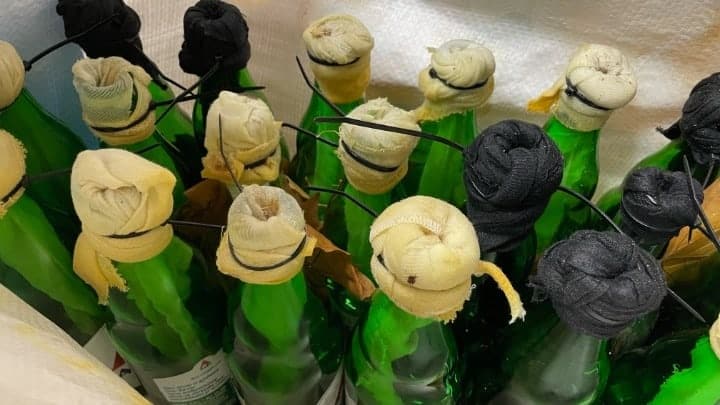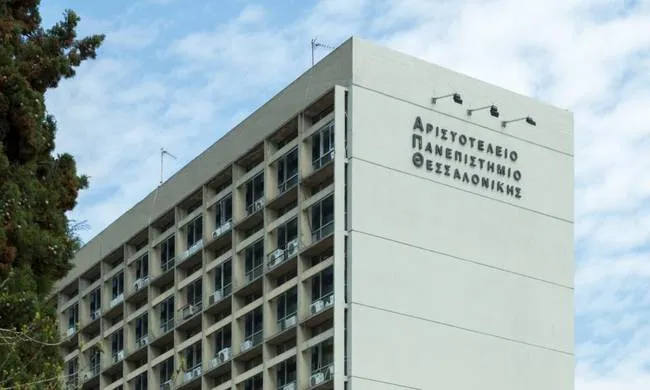A total of nineteen improvised explosive devices (aka Molotov cocktails), were discovered by the police in an open outdoor area, near the new Chemistry building of the Aristotle University of Thessaloniki.

The devices were confiscated and be sent to the Sub-Directorate of Criminological Investigations of Northern Greece, for examination.
Preliminary investigation is under way.
This is not the first time Molotov cocktails were found at the university. In August 2013, some 33 improvised explosive devices were discovered on the same campus.
More to follow....
RESOURCE | ABOUT MOLOTOV COCKTAILS
A Molotov cocktail, also known as a petrol bomb, gasoline bomb, bottle bomb, poor man's grenade, fire bomb (not to be confused with an actual fire bomb), fire bottle or just Molotov, sometimes shortened as Molly, is a generic name used for a variety of bottle-based improvised incendiary weapons.
Due to the relative ease of production, Molotov cocktails have been used by criminals, rioters, football hooligans, urban guerrillas, terrorists, irregular soldiers, or even regular soldiers short on equivalent military-issue weapons.
The name "Molotov cocktail" was coined by the Finns during the Winter War, called Molotovin koktaili in Finnish. The name was a pejorative reference to Soviet foreign minister Vyacheslav Molotov, who was one of the architects of the Molotov–Ribbentrop Pact signed in late August 1939.
The name's origin came from the propaganda Molotov produced during the Winter War, mainly his declaration on Soviet state radio that bombing missions over Finland were actually airborne humanitarian food deliveries for their starving neighbours.
As a result, the Finns sarcastically dubbed the Soviet cluster bombs "Molotov bread baskets" in reference to Molotov's propaganda broadcasts. When the hand-held bottle firebomb was developed to attack and destroy Soviet tanks, the Finns called it the "Molotov cocktail", as "a drink to go with his food parcels".
As incendiary devices, Molotov cocktails are illegal to manufacture or possess in many regions. In the United States, Molotov cocktails are considered "destructive devices" under the National Firearms Act and are regulated by the ATF. Wil Casey Floyd, from Elkhart Lake, Wisconsin, was arrested after throwing Molotov cocktails at Seattle police officers during a protest in May 2016; he pleaded guilty for using the incendiary devices in February 2018.
In Simpson County, Kentucky, 20-year-old Trey Alexander Gwathney-Law attempted to burn Franklin-Simpson County Middle School with five Molotov cocktails; he was found guilty of making and possessing illegal firearms and was sentenced to 20 years in prison in 2018.
[Wiki]

